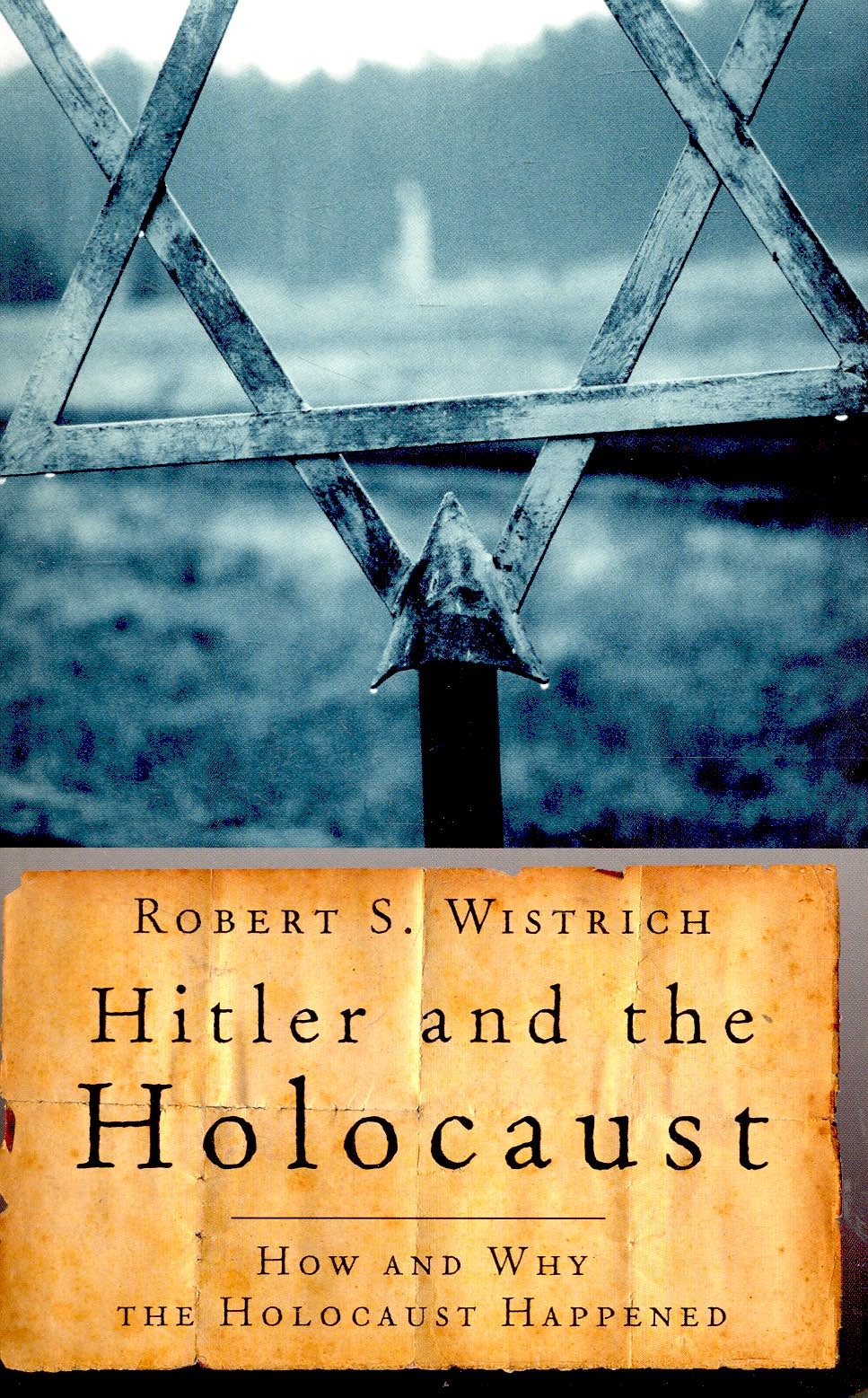
Hitler and the Holocaust
فرمت کتاب
ebook
تاریخ انتشار
2001
Reading Level
12
ATOS
13.1
Interest Level
9-12(UG)
نویسنده
Robert S. Wistrichشابک
9781588360977
کتاب های مرتبط
- اطلاعات
- نقد و بررسی
- دیدگاه کاربران
نقد و بررسی

September 3, 2001
Wistrich, professor of modern Jewish history at Hebrew University in Jerusalem, has masterfully condensed four decades of Holocaust research into an accessible and informative book that will benefit specialists and lay readers alike. This new addition to the Modern Library's Chronicles series of short histories is organized thematically, exploring 2,000 years of anti-Semitism, the context and events that yielded the Third Reich and what differentiates the Holocaust from other 20th-century genocides. As depicted here, the few rays of light offered by the noble actions of Denmark, Italy and Bulgaria are snuffed out by the Protestant and Catholic churches' inactivity, the shameful behavior of Britain and the U.S., and the atrocious actions of Germans and other Europeans, particularly the German allies. Wistrich (The Jews of Vienna in the Age of Franz Joseph) continually refers and responds to other Holocaust studies; of particular interest is the controversy concerning "ordinary men" and "ordinary Germans" that erupted with Daniel Jonah Goldhagen and Christopher Browning's studies. Wistrich draws a connection between the infamous Nazi euthanasia program and later developments, and briefly discusses the debate between "functionalists" (those who believe the Holocaust to be an outcome of the war) and "intentionalists" (those who believe Hitler always intended to exterminate the Jews). The general reader will be interested in Wistrich's detailed description of the decision to implement the "Final Solution." The most provocative chapter, though, is surely the last, on "Modernity and the Holocaust." Most commentators (secular and religious) have argued that the Holocaust represents the complete antithesis of Western civilization, but some scholars interpret it as the logical, brutal outcome of Western modernity's bureaucratic, technocratic and rationalist impulse. Wistrich's balanced, nuanced discussion is illuminating. Agent, Andrew Wylie.

September 1, 2001
Organized thematically, this work by Wistrich (Neuberger Professor, Hebrew Univ. of Jerusalem) presents a concise view of the major issues of the Holocaust, from Hitler's ideology to the questions of local collaboration and Allied policy. Although most short studies degenerate into oversimplification, Wistrich is generally fair to the major historiographical issues and usually avoids the polemics so common to discussions about such issues as why the Allies didn't bomb Auschwitz. Some of the most controversial issues are raised in the chapter "Between the Cross and the Swastika," which discusses the role of Christianity and the Christian churches in the Holocaust. For example, Wistrich is critical of the Catholic Church hierarchy and in particular Pope Pius XII's refusal to condemn Nazi racial laws publicly. Yet he is careful not to condemn all Christians, although he does address the impact that centuries of Christian anti-Semitic dogma had upon events. Although well written, this book does assume a certain familiarity with events. Those who need a quick reference framework can read R.S. Botwinick's short A History of the Holocaust (Prentice-Hall, 2001) to good advantage. Recommended for all libraries. Frederic Krome, Jacob Rader Marcus Ctr. of the American Jewish Archives, Cincinnati
Copyright 2001 Library Journal, LLC Used with permission.

September 1, 2001
The fundamental unanswered question is "Why?" Wistrich insists in the introduction to this short but powerful history of the Holocaust. Why were Jews worked to death on senseless, unproductive tasks even when Germany was experiencing an acute labor shortage? Why were skilled Jewish armament workers killed in the camps despite the pressing military needs of the German army? Why did the Nazis insist that they were fighting an omnipotent Jewish power even as their mass murder of the Jews revealed the powerlessness of their enemy? Wistrich, a professor and author of numerous works on the history of modern Jewry and anti-Semitism, points to the fact that Jews were seen as the source of all evils and were branded "a ferment of decomposition, formlessness, chaos, and racial degeneration." Wistrich explains that World War II made the Holocaust a concrete possibility; the victories of the German armed forces brought millions of Jews under the heel of German power for the first time.(Reprinted with permission of Booklist, copyright 2001, American Library Association.)

























دیدگاه کاربران